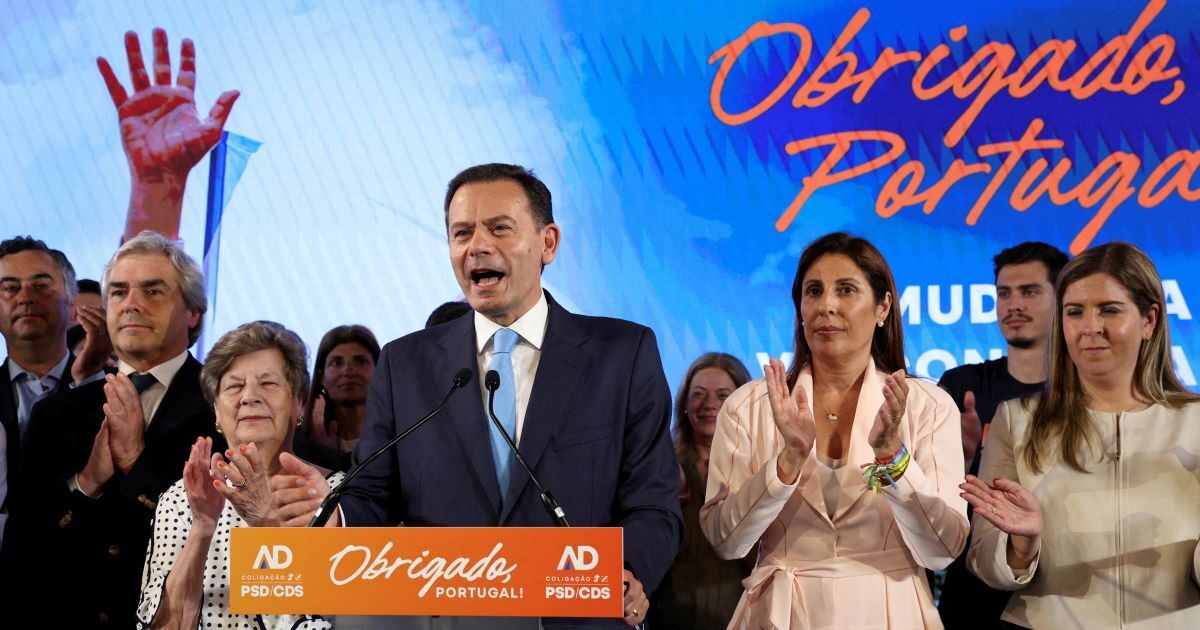O center -right prime minister, Luis Montenegrowas the winner of the early parliamentary election to Portugalwhich took place on Sunday (18.5.25), but – as a year ago -, without a majority that would guarantee political stability.
At the same time, the far -right, represented by the Sega faction (“Enough”), which continues to increase its rates in the Portugal elections in recent years, has broken its barrier for the first time. 20% of the votes and threatened to overcome the Socialist Party, to become an official opposition.
Based on the almost final results, the fellowship, the Democratic Alliance (ad)received the 32,7% of votes, the Socialists (PS) the 23,4% and Sega 22.6%.
Without counting the four basic subsets of the Portuguese diaspora votes, as the results of them are expected to be announced in the coming days, the faction of the fellowship will understand. 89 seats from the total of 230 of the Portuguese national delegation, much less than the 116 that are synonymous with the absolute majority.
As for the number of seats, the Socialists and the Right brought until recently a tie (58).
Montenegro, who praised that he “the people want this government”, and “this prime minister”, promised last night that his next government would prove to be “worthy of the increased confidence that voters showed”.
He once again assured that he would not cooperate with the far right and discounted that a new minority government would form.
The 52 -year -old lawyer was forced to resign in March with the backdrop of suspicions of conflict of interest due to the family consulting company.
Although he won the bet on his political survival, his profits are inadequate, they do not significantly change the balance of power in the Portuguese parliament.
Analysts doubt whether the prime minister will be able to keep his promise not to cooperate with the far -right, who consider the “big winner of the night”, as opposed to the center -left suffered “defeat of historical dimensions”.
The leader of the socialists, the Pedro Nuno Santoshe announced his resignation after the outcome, stating that he would call for “intra -party elections” in which he would not run.
For the president of Sega Andre Ventura, on his part, he celebrated that “nothing is (will) as before”, claiming that “we wrote history”.
The government of Prime Minister Montenegro in one year of his term made the Iberian country’s policy more rigorous, one of the most relaxed in Europe over the days of his socialist predecessor Antonio Costa.
While the number of foreigners living in Portugal has quadrupled between 2017 and 2024, reaching almost 15% of the population (10 million), immigration is increasingly concerned with political dialogue.
